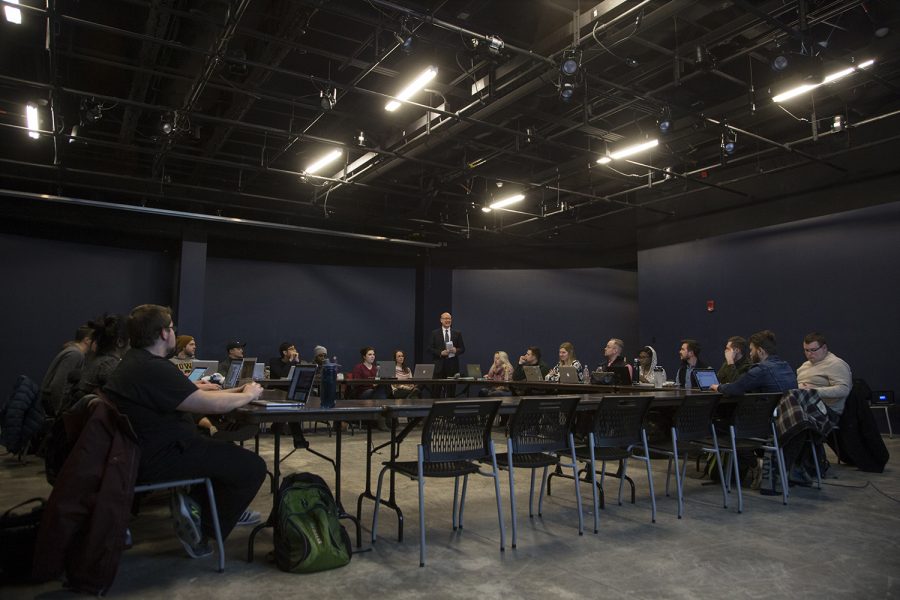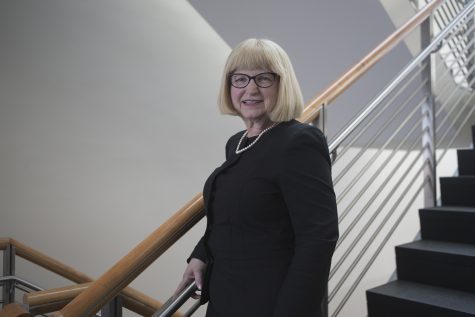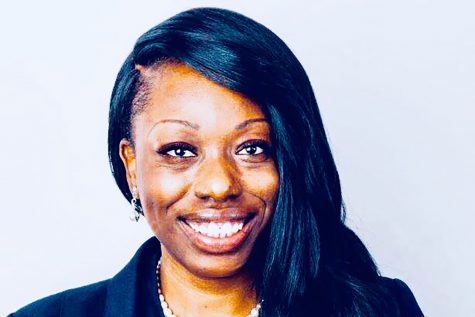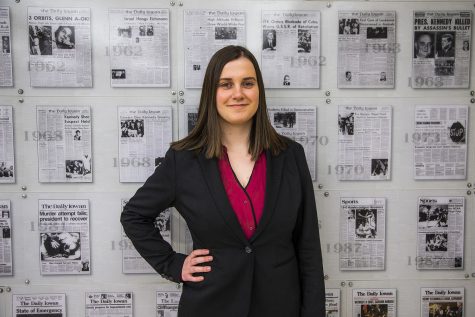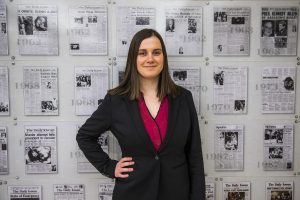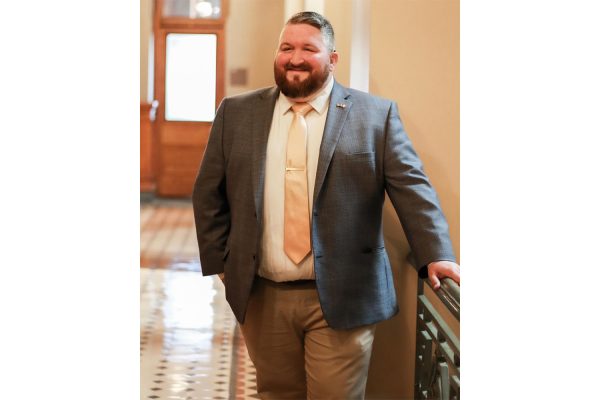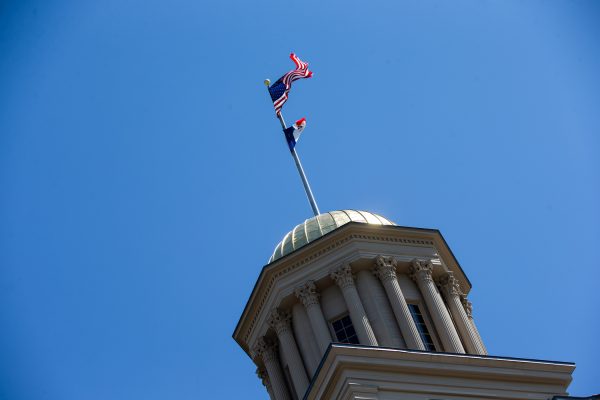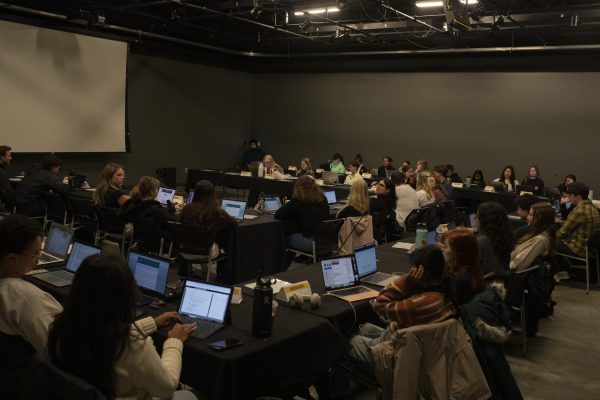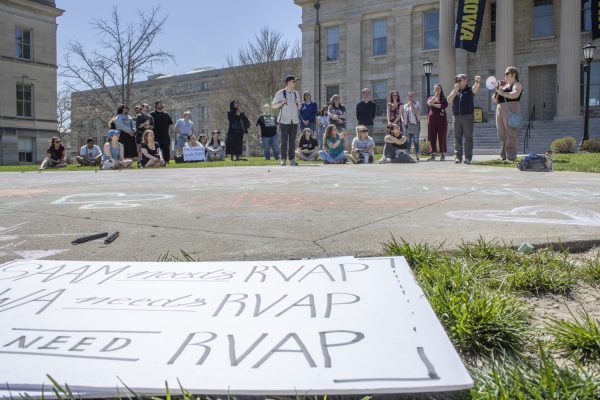UI CFO discusses public/private utility with GPSG
University of Iowa CFO Terry Johnson met with the GPSG on Monday to discuss a proposed public/private partnership.
University Chief Financial Officer and Treasurer Terry Johnson explains what a becoming a Public Private Partnership or P3 would mean for the university at a meeting of the UI GPSG on March 4, 2019.
March 5, 2019
University of Iowa Chief Financial Officer Terry Johnson delivered a presentation about a public/private utility partnership to the Graduate Program Student Government at its meeting on Monday in the IMU.
A public/private partnership is a typically long-term agreement between public and private entities formed to provide a public asset or service, such as utilities. Under this type of partnership, the UI would continue to own its utility system while entering into a utility-services agreement with a private-sector partner for up to 50 years.
RELATED: UI exploring public/private partnership for utility system
The services and entities covered by the new service would include the Power Plant, chilled water, and water.
“In today’s world, we own the plant. All the employees are university employees. We cover all the operating expenses; we purchase all the fuels,” Johnson said. “We’ll continue to own the Power Plant and all those assets, but we’re going to seek a new partner that would maintain the plant system.”
Johnson said the UI planned to use the money from the new deal to pay for future university expenses and programs.
“We’re seeing our state appropriations slowly [declining] over time,” Johnson said. “We’re still going to raise tuition, but ideally, we can slow that pace. And hopefully, we can invest in new programs. We’re going to have to up the ante here as far as making us a highly attractive university.”
Johnson said employees who are not offered a position with the new operating entity will be offered positions with the university but will need to be retrained.
RELATED: UI Faculty Senate addresses potential public/private partnership
“The employees who we have in our plant, we want them to move over to our new plant,” Johnson said. “These employees are going to move over to our new employer if we go that far.”
Johnson pointed to Chicago’s public/private partnership in its parking system, saying that the UI will learn and use lessons from the mistakes made during that process.
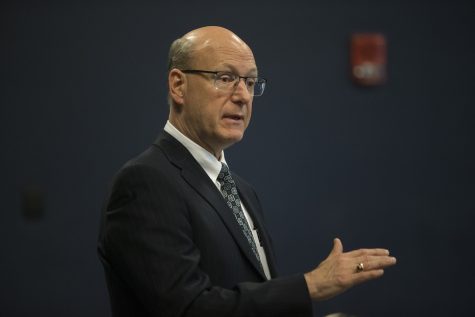
University Chief Financial Officer and Treasurer Terry Johnson explains what a becoming a public/private partnership would mean for the university at a meeting of the UI GPSG on March 4, 2019.
“I’m not going to be up here to see this through. That scares me,” Johnson said. “That puts even more pressure on me and others in central administration to make sure that this is done in the right way in the absolute long term.”
The presentation lasted approximately 40 minutes, followed by an opportunity for members of GPSG to ask questions.
GPSG Vice President Thomas Pak asked for clarification about the cost.
“So, we get 40 percent of our electricity from this plant, but if we give it off to this partner, then we would have to pay for electricity to them along with the water?” Pak asked.
Should this partnership happen, Johnson answered, the electricity costs would be covered.
Members of the GPSG expressed concerns about the length of the contract in an uncertain energy market. Co-sustainability chair Christian Bako asked, “Are there designated times throughout the contract that are open to negotiation or renegotiation?”
Johnson noted that the facilities taken over by the new operating body would be coal-free by 2025, the UI’s goal.
The university plans to issue a request for proposals from operating companies over the summer. Administrators will select the winning bid in the fall. However, UI will retain the right to exit the exploratory process up until the point a contract is signed.
“If we go forward with this [plan], the only reason we’ll go forward with [it] is to find a new revenue source to invest back into our university,” Johnson said. “If we can’t reach an agreement, we walk away, end of story.”



